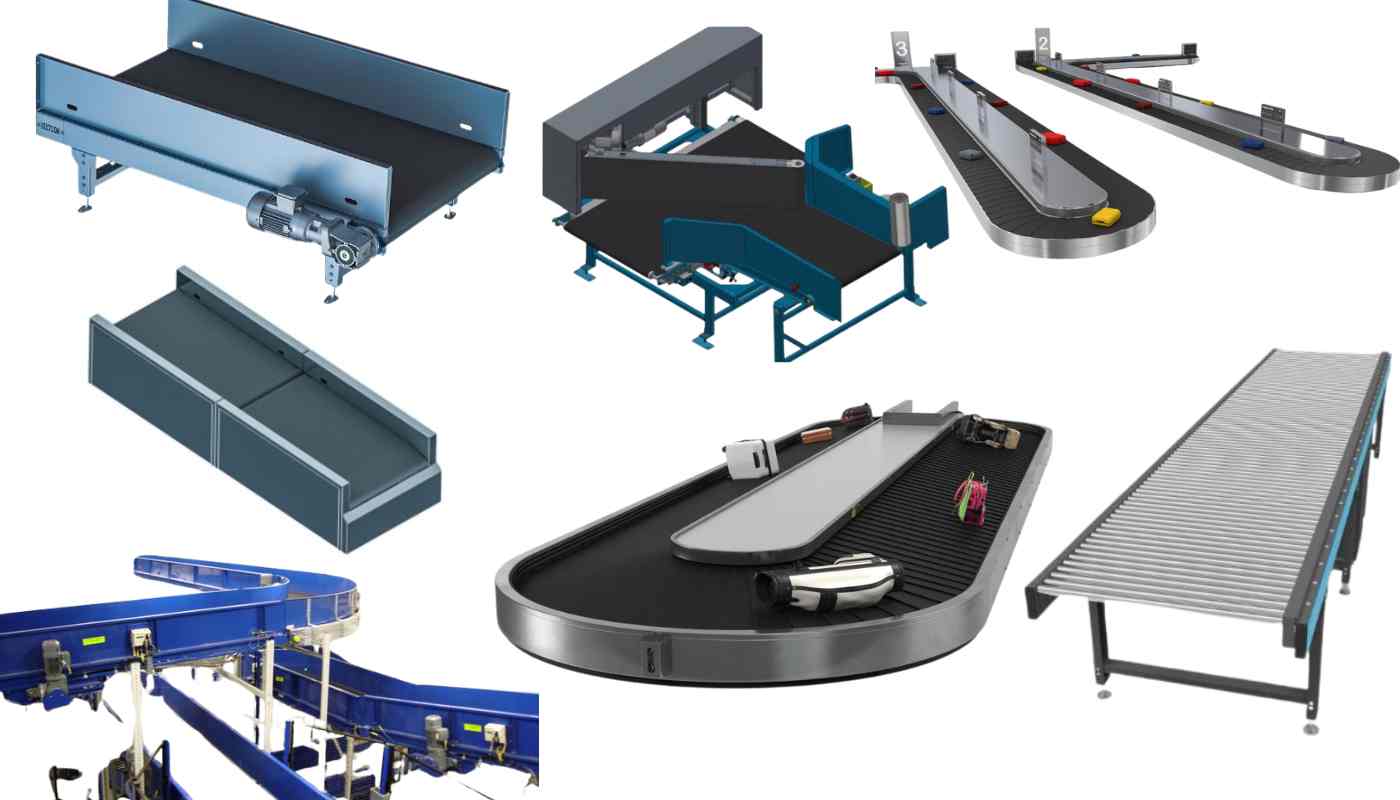Airport Baggage Handling Systems in South Korea in 2024
When it comes to seamless travel experiences, one crucial yet often overlooked aspect is baggage handling. Behind the scenes at South Korea’s bustling airports lie sophisticated systems designed to ensure your luggage arrives safely and promptly at your destination. In this article, we delve into the world of baggage handling systems in South Korea, exploring the technology, efficiency, industry developments, and the benefits and challenges associated with these systems.

Incheon Airport Baggage Handling
Incheon International Airport, one of the busiest airports in the world, boasts an impressive baggage handling system that sets the standard for efficiency and reliability. From the moment your luggage is checked in, it embarks on a journey through a maze of conveyor belts, automated sorting systems, and security checks, all orchestrated to ensure smooth transit.
Gimpo Airport Baggage Claim
Gimpo Airport, located in the heart of Seoul, features modern baggage claim systems designed to streamline the arrival process for passengers. Carousel baggage delivery ensures that luggage is promptly reunited with its owners, minimizing wait times and enhancing overall satisfaction.
South Korean Airport Automation
Automation is at the core of South Korea’s airport operations, with advanced technology driving efficiency and reliability. Baggage sorting systems (BSS) and in-line baggage handling systems are utilized to optimize throughput and minimize the risk of errors.
Automated Baggage Handling Systems (ABHS)
South Korea leads the way in the implementation of automated baggage handling systems, leveraging robotics and artificial intelligence to streamline the entire process. These systems not only expedite baggage handling but also enhance security measures through advanced screening technologies.
Baggage Security Screening
Ensuring the safety and security of passengers and cargo is paramount in South Korea’s airports. State-of-the-art baggage security screening systems employ cutting-edge technology, including X-ray imaging and explosive detection, to detect any potential threats accurately.
Baggage Tracking Technology
RFID baggage tags have revolutionized the way luggage is tracked throughout its journey. In South Korea, these tags enable real-time monitoring, allowing airlines and passengers to pinpoint the exact location of their belongings at any given moment.
Incheon International Airport Expansion:
As air travel continues to grow, Incheon International Airport is undergoing expansions to accommodate increasing passenger numbers. This includes enhancements to its baggage handling infrastructure to maintain efficiency amidst rising demand.
South Korean Airline Industry
The South Korean airline industry plays a pivotal role in driving innovation in baggage handling systems. Collaboration between airlines and technology providers ensures that the latest advancements are seamlessly integrated into airport operations.
Baggage Handling System Vendors in South Korea
A thriving ecosystem of vendors specializes in designing, manufacturing, and installing baggage handling systems in South Korea. Companies like Vanderlande are at the forefront, offering tailored solutions to meet the unique needs of each airport.
Improved Passenger Experience
Efficient baggage handling translates to a smoother and more enjoyable travel experience for passengers. With reduced wait times at baggage claim and minimized risk of mishandling, travelers can focus on their journey ahead.
Reduced Baggage Mishandling
Advanced tracking technology and automated sorting systems significantly reduce the likelihood of baggage mishandling. This not only saves airlines and airports time and money but also prevents inconvenience for passengers.
Operational Efficiency for Airlines and Airports
Streamlined baggage handling processes improve operational efficiency, enabling airlines to optimize their resources and minimize turnaround times. For airports, this translates to increased capacity and revenue generation opportunities.
Security Considerations in Baggage Handling
In an era of heightened security threats, maintaining robust security measures in baggage handling is paramount. South Korea’s stringent security protocols and investment in advanced screening technologies ensure that safety remains a top priority.
Cost-effectiveness of Baggage Systems
While the initial investment in advanced baggage handling systems may be significant, the long-term benefits far outweigh the costs. Improved efficiency, reduced operational errors, and enhanced security justify the expenditure for airlines and airports alike.
Price List
- Automated Baggage Handling System (ABHS):
- Price Range: $1,000,000 – $10,000,000
- Description: Fully automated system integrating conveyor belts, sorting technology, and baggage tracking for efficient handling of luggage.
- Baggage Sorting System (BSS):
- Price Range: $500,000 – $5,000,000
- Description: Advanced sorting system utilizing robotics and AI to categorize and route baggage to designated destinations.
- RFID Baggage Tracking Technology:
- Price Range: $50 – $100 per RFID tag
- Description: RFID tags for luggage enable real-time tracking and monitoring, enhancing security and reducing the risk of mishandling.
- Baggage Security Screening Systems:
- Price Range: $1,000,000 – $5,000,000
- Description: State-of-the-art screening systems utilizing X-ray imaging and explosive detection technology for thorough security checks.
- Baggage Conveyor Systems:
- Price Range: $100,000 – $1,000,000
- Description: Conveyor systems for the transportation of luggage within airports, customizable to suit specific layout and space requirements.
The future of BHS
South Korea’s commitment to innovation and efficiency is evident in its advanced baggage handling systems. From Incheon International Airport to regional hubs like Gimpo Airport, cutting-edge technology is leveraged to ensure the seamless transit of luggage, enhancing the overall travel experience for passengers. As the aviation industry continues to evolve, South Korea remains at the forefront, setting the standard for excellence in baggage handling systems.
FAQs
What makes South Korea’s baggage handling systems unique?
South Korea’s baggage handling systems stand out for their integration of advanced technology, including automated sorting and RFID tracking. These systems ensure efficiency, reliability, and enhanced security throughout the baggage handling process.
How do automated baggage handling systems benefit travelers?
Automated baggage handling systems in South Korea streamline processes, leading to shorter wait times at baggage claim and reduced risk of mishandling. This enhances the overall travel experience by minimizing inconvenience for passengers.
Are South Korea’s baggage handling systems cost-effective for airlines and airports?
While the initial investment in advanced baggage handling systems may be significant, the long-term benefits, including improved efficiency and security, justify the cost. These systems ultimately lead to operational savings and enhanced passenger satisfaction.